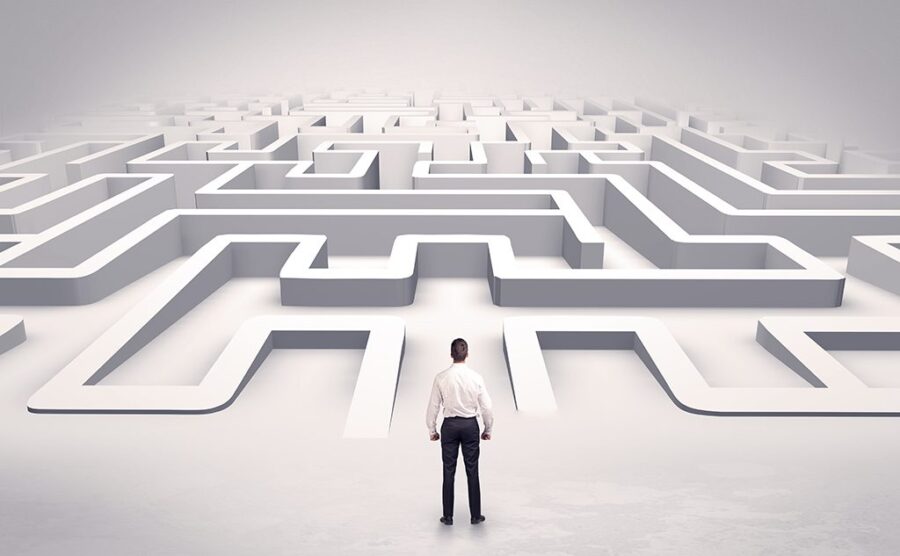
As we are going through a period of extraordinary change and as suggested in the last article – change is outpacing comprehension – it is important for us to stop and take stock while the world is filled with twilight – no one knows whether it will be dawn or dusk. In such situations, I use mental models in both my professional and personal life. It confuses people as if thinking logically seems offensive to them and most of my acquaintances like to remain in the illusionary delusion of sentimentality. I believe in the power of the principle of Calculus, i.e., the infinity principle. It simply means dividing problems into smaller parts, finding solutions for each, and integrating them back. I intend to talk about such mental models in this space here and today’s article is a part of that.
Every action has a consequence, but it does not stop there. The consequences have further consequences to the nth order; without considering the nth, any decision you take will never tell you exactly what lies ahead.
What is second-order thinking? For example, you are hungry and want to eat and decide you want to eat a pie. That makes sense as long as you only confine yourself to first-order thinking i.e. you were hungry, you ate. However, if you would have thought it through and realized that you have high cholesterol, sugar is not good for you. Moreover, you recall that recently you went to dinner and devoured sweets there, which might lead to serious health issues. Therefore, you should eat something that isn’t sweet even though you want to. This practice is an example of Second-order thinking.
Legendary investor, Ray Dalio, shares his thoughts about this phenomenon below:
“Failing to consider second- and third-order consequences is the cause of many painfully bad decisions, and it is especially deadly when the first inferior option confirms your own biases. Never seize on the first available option, no matter how good it seems, before you’ve asked questions and explored.”—Ray Dalio (from Mental Models, FS Blog)

Another way to put this process is to ask, “and then what”? There are many instances, where your actions might have first-order positive consequences and second-order negative – and vice versa.

One can make a parallel between this and Daniel Kahneman’s System One and System Two thinking that he explains in his marvelous book, Thinking Fast and Slow. System 1 is mainly heuristics (rules of thumb). This is the fast, emotional, and reactive part of your mind. It is easily affected by biases and impressions. System 2 is the reasoning part that we normally avoid using as it requires deliberation. We need to use the latter more than the former.

How and why is this relevant to our world today? Look around you; there is mostly unrest, restlessness, or chaos. Take the example of the Russian invasion of Ukraine. In Putin’s mind, first-level thinking dominated as he tried to fulfill a maximalist agenda: taking control of some parts of Ukraine. However, a quick exercise in second-order thinking would have rendered the feasibility and utility of the whole exercise absolute void given the diplomatic and economic repercussions in the form of sanctions (which, interestingly, are not working, but that’s the matter for another day).
While we can debate the moral dimension of this intrigue, the events might not have been that disappointing for Russia. This phenomenon has been even more relevant to European actions. They wanted to place sanctions on Russia to chastise it for its behavior – First order thinking. But doing so has triggered a serious energy crisis that is set to affect Europe and the whole world – Second order thinking. They did this in an environment with rising interest rates and other inconsistencies in the global economy, which will further spill these effects into the socio-political domain – Third order thinking. And we can go on and on.

We can continue discussing multiple examples of this. Another important and relevant one is the hasty energy transition campaign that has not only contributed to the current energy crisis but has also made the world more susceptible to outages and tail risks (I strongly believe in climate change and am a staunch proponent of energy transitions only that I have a different point of view when it comes to the framing of the issue and its solutions).
Decision-making under uncertainty is one of the most important traits of leaders and policymakers. As we discussed the ever-growing Risk Society and Polycrisis, this skill is incumbent for everyone to learn. Students should be trained in conducting experiments and using mental maps. This is the era of second-order thinking, and we need to add more levels to it.

